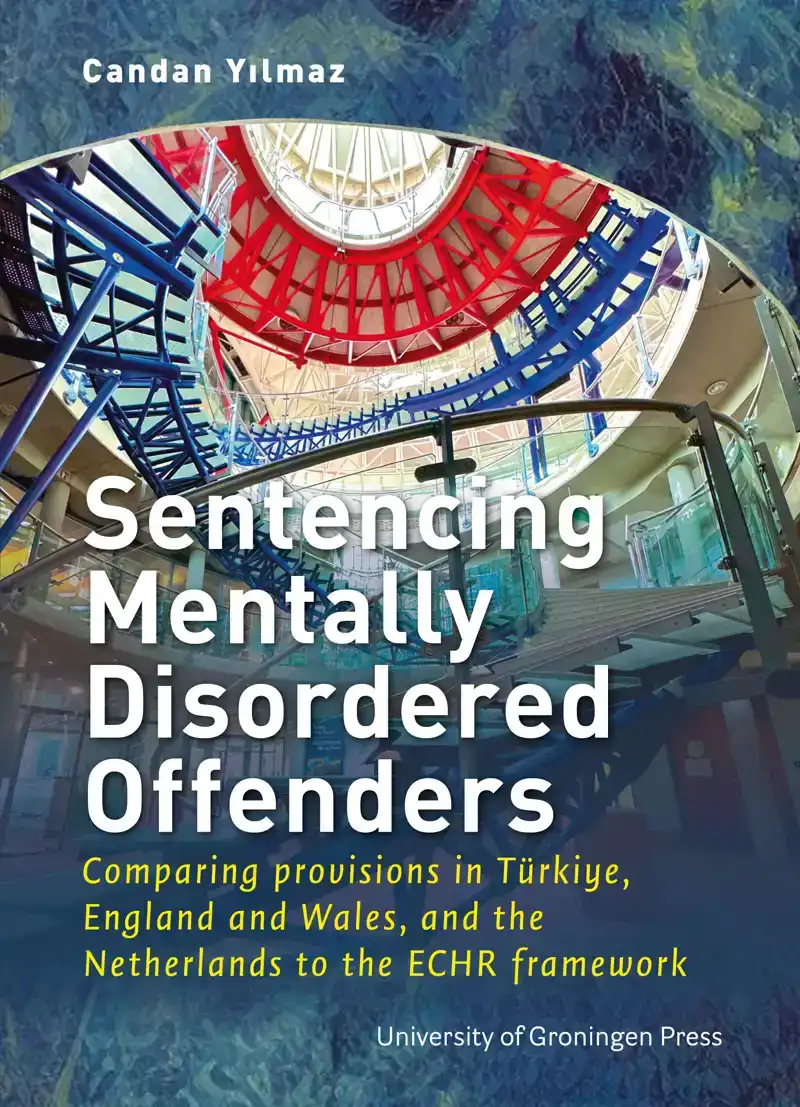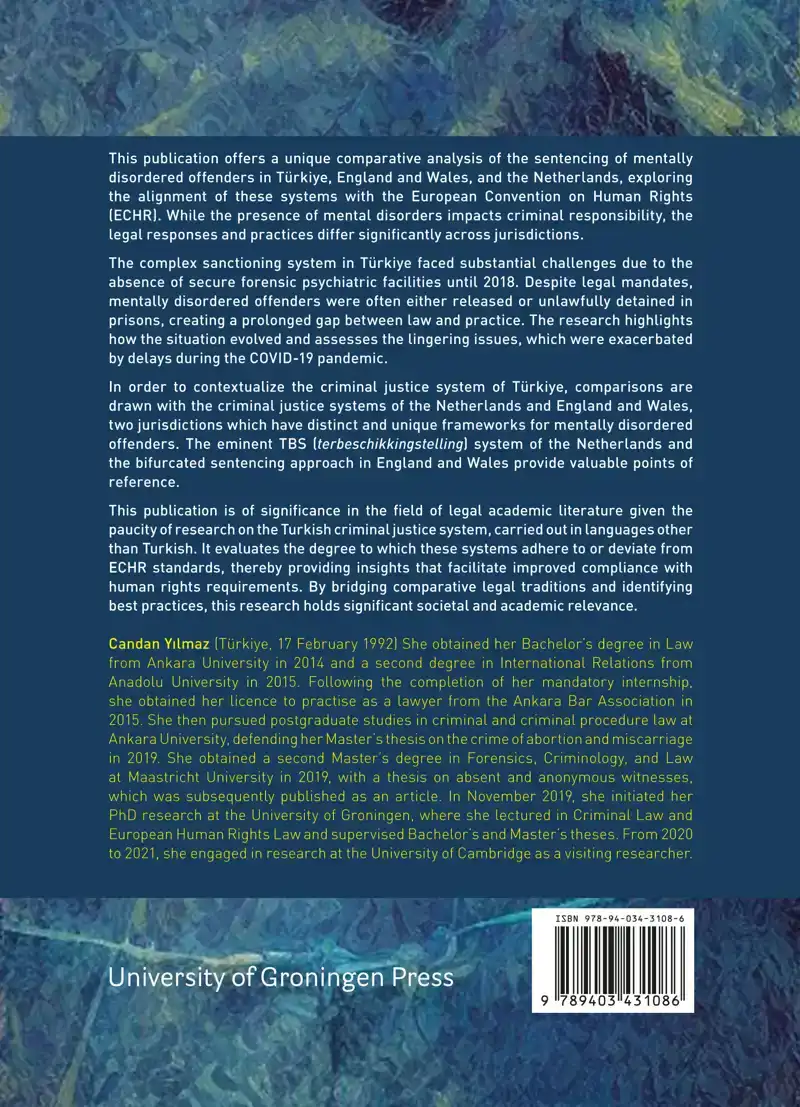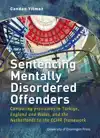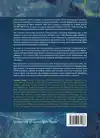- Engels
- Study
- Law
- intern. publiekrecht
- SENTENCING MENTALLY DISORDERED OFFENDERS
YILMAZ, CANDAN
SENTENCING MENTALLY DISORDERED OFFENDERS
59,00incl BTW
Dit boek wordt geprint en duurt gemiddeld 5 werkdagen
Vertrouwd sinds 1927
Persoonlijke aandacht en advies
Vanaf 17,50 gratis verzenden NL & BE
Meer dan 150.000 artikelen online
Omschrijving SENTENCING MENTALLY DISORDERED OFFENDERS
comparing provisions in Turkiye, England and Wales, and the Netherlands to the ECHR framework
This publication offers a unique comparative analysis of the sentencing of mentally disordered offenders in Turkiye, England and Wales, and the Netherlands, exploring the alignment of these systems with the European Convention on Human Rights (ECHR). While the presence of mental disorders impacts criminal responsibility, the legal responses and practices differ significantly across jurisdictions.
The complex sanctioning system in Turkiye faced substantial challenges due to the absence of secure forensic psychiatric facilities until 2018. Despite legal mandates, mentally disordered offenders were often either released or unlawfully detained in prisons, creating a prolonged gap between law and practice. The research highlights how the situation evolved and assesses the lingering issues, which were exacerbated by delays during the COVID-19 pandemic.
In order to contextualize thecriminal justice system of Turkiye, comparisons are drawn with the criminal justice systems of the Netherlands and England and Wales, two jurisdictions which have distinct and unique frameworks for mentally disordered offenders. The eminent TBS (terbeschikkingstelling) system of the Netherlands and the bifurcated sentencing approach in England and Wales provide valuable points of reference.
This publication is of significance in the field of legal academic literature given the paucity of research on the Turkish criminal justice system, carried out in languages other than Turkish. It evaluates the degree to which these systems adhere to or deviate from ECHR standards, thereby providing insights that facilitate improved compliance with human rights requirements. By bridging comparative legal traditions and identifying best practices, this research holds significant societal and academic relevance.
Candan Yilmaz (Turkiye, 17 February 1992) She obtained her Bachelor''s degree in Law from Ankara University in 2014 and a second degree in International Relations from Anadolu University in 2015. Following the completion of her mandatory internship, she obtained her licence to practise as a lawyer from the Ankara Bar Association in 2015. She then pursued postgraduate studies in criminal and criminal procedure law at Ankara University, defending her Master''s thesis on the crime of abortion and miscarriage in 2019. She obtained a second Master''s degree in Forensics, Criminology, and Law at Maastricht University in 2019, with a thesis on absent and anonymous witnesses, which was subsequently published as an article. In November 2019, she initiated her PhD research at the University of Groningen, where she lectured in Criminal Law and European Human Rights Law and supervised Bachelor''s and Master''s theses. From 2020 to 2021, she engaged in research at the University of Cambridge as a visiting researcher.
This publication offers a unique comparative analysis of the sentencing of mentally disordered offenders in Turkiye, England and Wales, and the Netherlands, exploring the alignment of these systems with the European Convention on Human Rights (ECHR). While the presence of mental disorders impacts criminal responsibility, the legal responses and practices differ significantly across jurisdictions.
The complex sanctioning system in Turkiye faced substantial challenges due to the absence of secure forensic psychiatric facilities until 2018. Despite legal mandates, mentally disordered offenders were often either released or unlawfully detained in prisons, creating a prolonged gap between law and practice. The research highlights how the situation evolved and assesses the lingering issues, which were exacerbated by delays during the COVID-19 pandemic.
In order to contextualize thecriminal justice system of Turkiye, comparisons are drawn with the criminal justice systems of the Netherlands and England and Wales, two jurisdictions which have distinct and unique frameworks for mentally disordered offenders. The eminent TBS (terbeschikkingstelling) system of the Netherlands and the bifurcated sentencing approach in England and Wales provide valuable points of reference.
This publication is of significance in the field of legal academic literature given the paucity of research on the Turkish criminal justice system, carried out in languages other than Turkish. It evaluates the degree to which these systems adhere to or deviate from ECHR standards, thereby providing insights that facilitate improved compliance with human rights requirements. By bridging comparative legal traditions and identifying best practices, this research holds significant societal and academic relevance.
Candan Yilmaz (Turkiye, 17 February 1992) She obtained her Bachelor''s degree in Law from Ankara University in 2014 and a second degree in International Relations from Anadolu University in 2015. Following the completion of her mandatory internship, she obtained her licence to practise as a lawyer from the Ankara Bar Association in 2015. She then pursued postgraduate studies in criminal and criminal procedure law at Ankara University, defending her Master''s thesis on the crime of abortion and miscarriage in 2019. She obtained a second Master''s degree in Forensics, Criminology, and Law at Maastricht University in 2019, with a thesis on absent and anonymous witnesses, which was subsequently published as an article. In November 2019, she initiated her PhD research at the University of Groningen, where she lectured in Criminal Law and European Human Rights Law and supervised Bachelor''s and Master''s theses. From 2020 to 2021, she engaged in research at the University of Cambridge as a visiting researcher.
Reviews
0.0/5.0
Gemiddelde uit 0 reviews
Meest behulpzame reviews
Nog geen reviews geschreven




